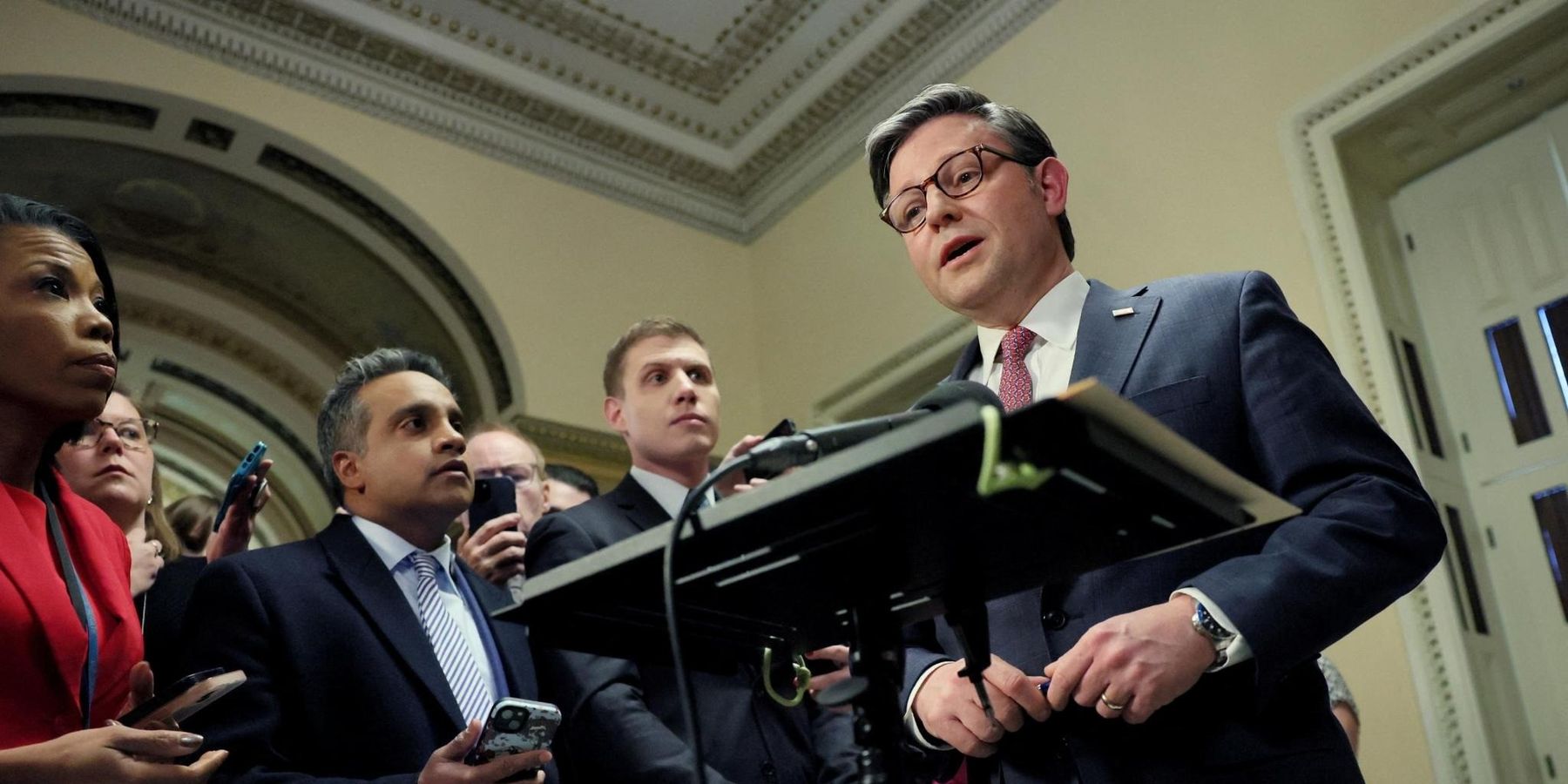In an outcome that appeared unlikely just weeks ago, the Senate passed the $95 billion national security supplemental on Tuesday morning, by a vote of 70-29. Whether the bill will eventually become law remains an open question.
The legislation — which included $60 billion in aid for Ukraine, approximately $14 billion in security assistance for Israel, $9.2 billion in humanitarian aid for Gazans and people in other war zones, and almost $5 billion in aid for partners in the Indo-Pacific — received support from 22 Republicans and 48 Democratic senators.
Two Democrats, along with Sen. Bernie Sanders (I-Vt.), voted against the package in opposition to the money being sent to Israel as it conducts its retaliatory war in Gaza which has so far resulted in over 28,000 deaths, according to the Gazan health ministry.
Among Republicans, support slowly grew during a series of procedural votes, but ultimately less than half of the caucus voted for a bill that was supported by most of party leadership in the Senate.
For months, the next tranche of Ukraine aid has been hanging in the balance. After a tumultuous few days, there now appears to be the chance of passage, though the road ahead is murky.
Earlier in February, the Senate —which has largely been more supportive of continued aid for Ukraine than has the House — had devised to include border security measures as a way to convince skeptical Republicans to support aid for Ukraine.
But the bill was dead essentially as soon as it landed, with a large group of Republicans opposing the border language, which had been negotiated by Sens. Chris Murphy (D-Conn.), Kyrsten Sinema (I-Ariz.), and James Lankford (R-Okla.) . Within two days Senate Minority Leader Mitch McConnell, (R-Ky.), who had earlier championed the legislation, acknowledged that “we have no chance to make a law” from the current proposal.
Instead, the Senate returned to the Biden administration’s plan A, by bringing his sprawling foreign aid package to the floor. A group of Republicans, led by Sens. Rand Paul (R-Ky.), J.D. Vance (R-Okla.), and Mike Lee (R-Utah) used procedural tools to drag the process out, opposing the quick passage of the bill and what they see as a misguided push to keep funding Kyiv’s war effort.
“It was the bipartisan foreign policy consensus, the experts, that got us into a 20 year war in Afghanistan, where American taxpayers, for two decades, funded things like how to turn Afghanistan into a flowering democracy, or how to ensure that the Afghans had proper American thoughts about gender in the 21st century. Well, maybe that was a waste of money, and maybe the experts were wrong,” Vance said during a floor speech on Monday. ““Now, those experts have a new crusade. Now those experts have a new thing that American taxpayers must fund and must fund indefinitely. And it is called the conflict in Ukraine.” Following an overnight filibuster, the Senate eventually passed the bill.
McConnell declared victory on Tuesday morning. “Today, we faced a clear test of that resolve. Our adversaries want America to decide that reinforcing allies and partners is not in our interest, and that investing in strategic competition is not worth it. They want us to take hard-earned credibility and light it on fire,” the minority leader said in a statement. “History settles every account. And today, on the value of American leadership and strength, history will record that the Senate did not blink.”
Getting this legislation through the House, however, presents another, likely even more difficult, test. Speaker of the House Mike Johnson (R-La.) said late on Monday in a statement that the House will “work its own will on these important matters,” and that “America deserves better than the Senate’s status quo.” Johnson has maintained that the supplemental should include border security provisions, but he has also said that he does want to support Kyiv.
If the legislation is ever brought to a vote, it is likely to have enough votes, but Rep. Marjorie Taylor Greene (R-Ga.), an opponent of Ukraine aid, has pledged to use a “motion to vacate” to remove Johnson from the speakership if he allows a vote on funding Kyiv. Accusations that he had made a “secret deal” with Biden to send more aid to Ukraine was partially responsible for ending Rep. Kevin McCarthy (R-Calif.) term as Speaker last year.
To get around this roadblock, congressional Democrats have floated voting to keep Johnson in power if he allows a vote on the national security spending package to proceed. Alternatively, strong supporters of Ukraine in the House could use a discharge petition to overcome opponents of the legislation — a process that can allow a House majority to bypass leadership and force floor action on a bill that has been stuck in committee (RS explained in more detail how this process could work last year).
















